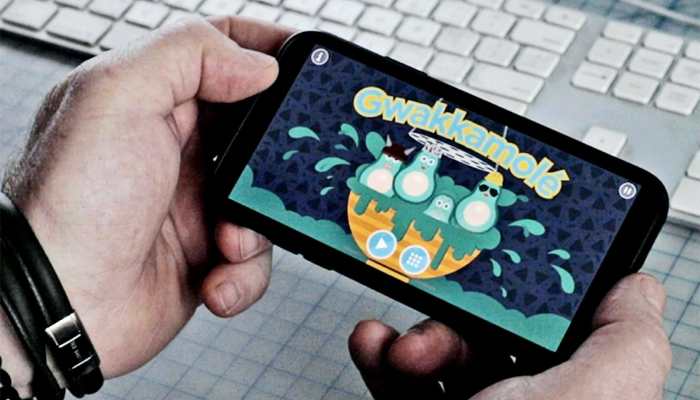
Introduction to Online Games for Cognitive Skills

Cognitive skills are essential for navigating daily life effectively. They influence our ability to learn, communicate, and solve problems. As we engage in tasks ranging from work to social interactions, strong cognitive skills can significantly enhance our performance. Notably, online games have emerged as a fun and effective way to improve these skills. Research has shown that gaming can foster cognitive development by enhancing memory, attention, and problem-solving abilities.
A study conducted by the University of Toronto found that playing action video games can improve a player’s attention span and spatial awareness. Furthermore, the American Psychological Association reports that video games can enhance cognitive flexibility, allowing players to adapt to changing situations.
Types of Online Games That Improve Cognitive Skills

Online games come in various genres, each targeting different cognitive skills. Understanding these categories can help players select games that best meet their needs.
- Puzzle Games: These games challenge players to solve problems and think critically. Popular examples include “Tetris” and “Candy Crush,” which improve spatial reasoning and pattern recognition.
- Strategy Games: Games like “StarCraft” and “Civilization” require planning and resource management. They enhance problem-solving skills and decision-making abilities.
- Memory Games: Titles like “Lumosity” and “Peak” focus on memory enhancement. They often involve tasks designed to boost recall and information retention.
Each genre effectively targets specific cognitive skills, with puzzle games honing problem-solving abilities, strategy games enhancing analytical thinking, and memory games working to improve recall.
Research on the Effectiveness of Online Games
Numerous studies have investigated the cognitive benefits of gaming. Research typically employs methods such as longitudinal studies, control groups, and brain imaging to assess cognitive improvements. One key study published in the journal “Nature” found that participants who played action games showed a significant improvement in visual attention and task-switching abilities after just a few weeks of gameplay. Another research project demonstrated that elderly players of memory-enhancing games experienced improved cognitive function, supporting the idea that gaming can benefit individuals across various age groups.
Designing a Balanced Gaming Routine
To maximize the cognitive benefits of gaming, it’s crucial to design a balanced gaming routine. Here are some practical tips for incorporating gaming into your daily life effectively:
- Set specific gaming times, such as 30 minutes a day, to prevent excessive play.
- Vary the types of games you play to target multiple cognitive skills and keep engagement high.
- Mix gaming with other activities, such as physical exercise or social engagements, to maintain a well-rounded lifestyle.
Creating this balance ensures that gaming remains a beneficial part of your routine rather than a distraction.
Comparative Analysis of Popular Online Games
A comparative analysis of popular online games can provide insight into their cognitive benefits. The following table summarizes key features of some top-rated games.
| Game | Cognitive Benefits | Pros | Cons |
|---|---|---|---|
| Tetris | Spatial awareness, problem-solving | Simple mechanics, highly engaging | Repetitive gameplay |
| Lumosity | Memory, attention, flexibility | Science-backed, personalized training | Subscription cost |
| Civilization | Strategic planning, resource management | Deep gameplay, historical context | Time-consuming |
User reviews highlight significant cognitive improvements after consistent play, emphasizing both the fun and educational aspects of these games.
Personalizing Your Gaming Experience
Personalizing the gaming experience can significantly enhance cognitive skill development. Players should assess their cognitive strengths and weaknesses to choose games that align with their goals. Considerations for personalization include:
- Identify specific cognitive areas you wish to improve, such as memory or problem-solving.
- Choose games that offer varying difficulty levels to match your current skill set.
- Explore recommendations from trusted sources or gaming communities to find games tailored to your needs.
This personalized approach ensures that players remain engaged and challenged, maximizing the cognitive benefits.
Incorporating Social Elements into Cognitive Gaming
Social interaction plays a pivotal role in enhancing cognitive skills through gaming. Multiplayer and cooperative games encourage teamwork and competition, which can lead to improved cognitive abilities. Games like “Overcooked” and “Among Us” require players to communicate effectively and make quick decisions, fostering crucial social and cognitive skills. Collaborative gameplay not only enhances problem-solving abilities but also strengthens social bonds, promoting a sense of community among players.
Future Trends in Cognitive Gaming
Emerging technologies are set to revolutionize the landscape of cognitive gaming. Innovations such as virtual reality (VR) and augmented reality (AR) are creating immersive experiences that can further enhance cognitive skill development. Trends in gamification are also gaining traction, particularly in educational settings, where gaming elements are integrated into learning environments. Predictive analyses suggest that cognitive games will continue to evolve, potentially leading to more personalized and effective training methods that cater to individual learning styles and cognitive needs.

